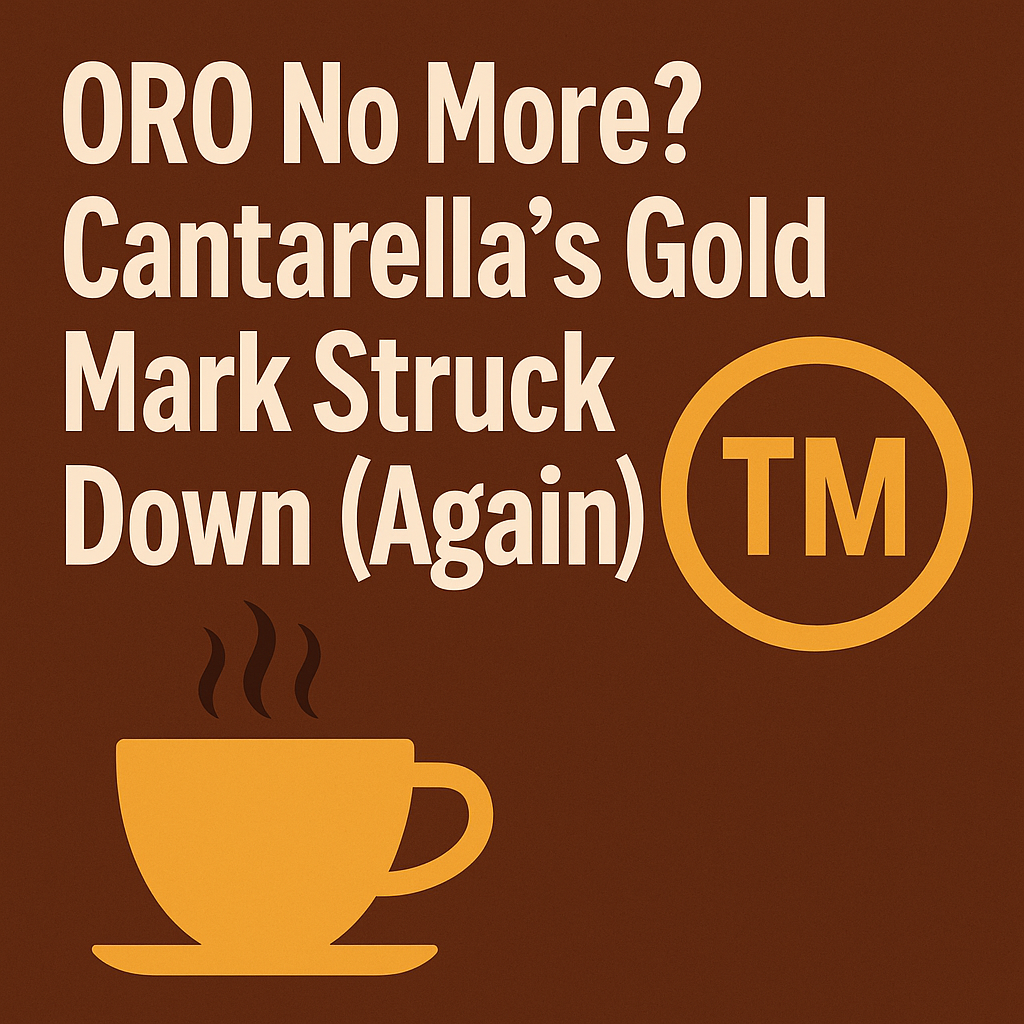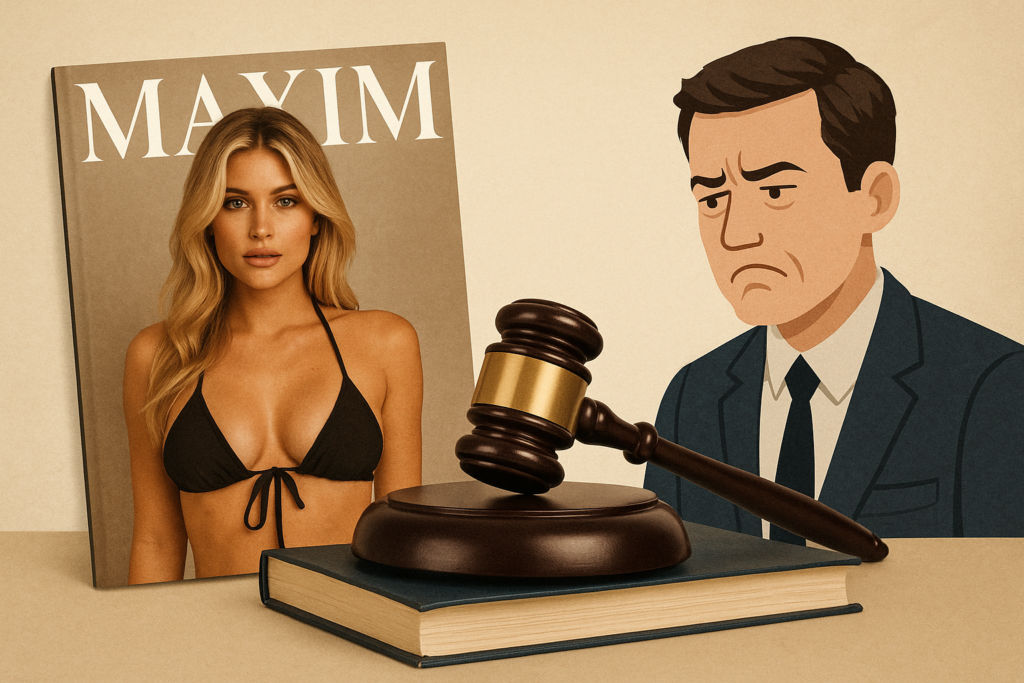
🟫 Cantarella Bros v Lavazza: The Espresso Shot Heard Around the IP World
There’s a certain irony in watching a decades-long trade mark fight over a word that literally means “gold” end up in ashes.
After a turbulent three-year legal grind, Cantarella Bros v Lavazza has finally run its course — with the Full Federal Court siding squarely with Lavazza and the High Court rejecting Cantarella’s special leave application in June 2025.
At stake? Ownership of the word ORO — Italian for “gold” — as a trade mark for coffee.
🧾 ORO, Take Two: The Sequel to Modena
You might recall Modena, the 2014 High Court showdown where Cantarella successfully defended ORO as being inherently adapted to distinguish Cantarella’s goods from those of others. That win secured their mark’s survival from a descriptiveness challenge under s 41 of the Trade Marks Act 1995.
But Modena never tested ownership. And that’s where things have now unravelled.
Enter Molinari — an Italian roaster whose Caffè Molinari Oro blends were apparently in Australia before Cantarella’s first use. Lavazza, whose own Qualità Oro has long glittered on shelves, used this to challenge Cantarella’s ownership under section 58 of the Act.
⚖️ The Trial Decision (2023): Ownership Is Everything
In October 2023, Justice Yates in the Federal Court found that Molinari used the mark ORO in a trade mark sense in Australia as early as 1995 — a full year before Cantarella. That meant Cantarella wasn’t the first user, and thus not the true owner of the ORO mark.
Even though Molinari hadn’t used it themselves for years, the court found no clear evidence of abandonment.
The result? The ORO registrations were invalidated. No valid mark, no infringement.
🧭 The Appeal (2025): Nice Try, But Still No Gold
Cantarella ran multiple grounds on appeal. They challenged the trial judge’s acceptance of evidence, the interpretation of what constituted trade mark use, and even suggested they had become an “honest concurrent user” (which might have had flow-on effects allowing them to keep it registered).
But the Full Federal Court wasn’t buying it. It affirmed the trial findings — particularly that:
-
Molinari’s use of ORO was use as a trade mark,
-
Molinari’s rights had not been abandoned,
-
and Cantarella’s own arguments about honest concurrent use were too little, too late (that did not raise that argument at trial so could not raise it as a new ground on appeal … the result in that regard might have been different if they had raised it at trial).
They also dismissed Lavazza’s own cross-appeal on costs and distinctiveness. No party walked away with an espresso shot of victory on that front.
🏛️ High Court: Application Denied
On 12 June 2025, the High Court rejected Cantarella’s special leave bid — making the Full Court’s decision final.
It’s the second time Cantarella’s ORO mark has come before the High Court. But this time, the door was firmly closed.
🥊 Why It Matters
This is the latest in a string of cases reminding IP owners that first use means first rights — even if you think you’ve been using a mark for decades.
Some takeaways:
-
Section 58 (ownership) is a potent weapon in cancellation proceedings.
-
Evidence of early use — even murky invoices and decades-old packaging — can carry surprising weight.
-
A prior foreign user who supplied products into Australia through distributors can claim ownership if the mark was used as a badge of origin here.
-
The High Court’s Modena decision still stands, but it doesn’t immunise a mark from being struck out on ownership grounds.
☕ Final Sip
Cantarella’s gold-standard run with ORO has come to an end. With the marks cancelled and infringement claims torpedoed, it’s back to the blend board.
Meanwhile, Lavazza walks away vindicated — perhaps with a slightly smug crema.
 Automated decision-making is everywhere now — in the background of your credit check, your insurance quote, your job application, even the price you see for a pair of shoes. For a while, this opaque machine logic operated in a legal blind spot: useful, profitable, and often inscrutable. But no longer.
Automated decision-making is everywhere now — in the background of your credit check, your insurance quote, your job application, even the price you see for a pair of shoes. For a while, this opaque machine logic operated in a legal blind spot: useful, profitable, and often inscrutable. But no longer. The NSW Court of Appeal has handed down a sharp reminder that contract clauses don’t enforce themselves — and that if you leave key blanks unfilled in a standard form agreement, you may be left with no recourse when things go sideways.
The NSW Court of Appeal has handed down a sharp reminder that contract clauses don’t enforce themselves — and that if you leave key blanks unfilled in a standard form agreement, you may be left with no recourse when things go sideways. Ok, enough with the scaremongering – let’s thrash it out.
Ok, enough with the scaremongering – let’s thrash it out. Maxim Media, the publishers behind the well-known men’s lifestyle magazine and brand MAXIM, had minimal success when in Maxim Media Inc. v Nuclear Enterprises Pty Ltd [2024] FCA 1443 they sought urgent Federal Court orders to shut down an Australian company allegedly riding on their name — through magazines, domain names, destination tours, and model management services.
Maxim Media, the publishers behind the well-known men’s lifestyle magazine and brand MAXIM, had minimal success when in Maxim Media Inc. v Nuclear Enterprises Pty Ltd [2024] FCA 1443 they sought urgent Federal Court orders to shut down an Australian company allegedly riding on their name — through magazines, domain names, destination tours, and model management services. So you’ve filed a series trade mark in Australia. The marks are visually identical except for a single word that tweaks the service type — say, “BURST PLUMBING”, “BURST CLEANING”, “BURST GARDENING”.
So you’ve filed a series trade mark in Australia. The marks are visually identical except for a single word that tweaks the service type — say, “BURST PLUMBING”, “BURST CLEANING”, “BURST GARDENING”.